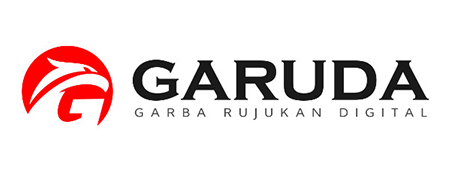SOSIALISASI MENGHINDARI HOAKS SEBAGAI UPAYA LITERASI DIGITAL BAGI WARGA RT 01 RW 04 BANTAR GEBANG
DOI:
https://doi.org/10.55681/ejoin.v2i6.2905Keywords:
Hoax, InformationTechnology, Digital LiteracyAbstract
The purpose of this community service activity is to provide outreach to residents of RT 01 RW 04 Bantar Gebang Bekasi about hoaxes, the prevalence of hoaxes in society, the bad impacts of hoaxes, and how to avoid hoaxes. The benefits of this socialization are that citizens gain new insights about hoaxes and how to avoid them, increase awareness regarding hoax problems, and understand and differentiate factual news from hoax news by increasing digital literacy. The implementation methods we use are observation, interviews, socialization, and evaluation. We provide this outreach by providing a direct understanding of Hoaxes and How to Avoid Them, as well as the importance of Digital Literacy. After the socialization was carried out, the residents of RT 01 RW 04 Bantar Gebang Bekasi showed increased awareness regarding the impact of hoaxes and showed positive changes in attitudes regarding the importance of literacy levels in an effort to avoid hoaxes.
Downloads
References
Allcott, H., & Gentzkow, M. (2017). Social media and fake news in the 2016 election. Journal of Economic Perspectives, 31(2), 211–236. https://doi.org/10.1257/jep.31.2.211
APJII, Asosiasi Penyelenggaraan Jasa Internet Indonesia. (2023). Survei Internet APJII 2023. https://survei.apjii.or.id/
Badan Pengembangan dan Pembinaan Bahasa. (2024). KBBI VI Dar ing. https://kbbi.kemdikbud.go.id
Bahri, S. (2021). Literasi Digital Menangkal Hoaks Covid-19 di Media Sosial. Jurnal Ilmu Komunikasi, 10(1), 16–28. https://jkms.ejournal.unri.ac.id/index.php/JKMS/article/view/7452
Fitriarti, E. A. (2019). Urgensi Literasi Digital Dalam Menangkal Hoax Informasi Kesehatan Di Era Digital. Metacommunication: Journal of Communication Studies, 4(2), 219. https://doi.org/10.20527/mc.v4i2.6929
Kominfo, Hingga Akhir Tahun 2023, Kominfo Tangani 12,547 Isu Hoaks. (2024). Siaran Pers No. 02/HM/KOMINFO?01/2024. https://www.kominfo.go.id/content/detail/53899/siaran-pers-no-02hmkominfo012024-tentang-hingga-akhir-tahun-2023-kominfo-tangani-12547-isu-hoaks/0/siaran_pers
Rahadi, D. R. (2017). Perilaku Pengguna Dan Informasi Hoax Di Media Sosial. Jurnal Manajemen Dan Kewirausahaan, 5(1), 58–70. https://doi.org/10.26905/jmdk.v5i1.1342
Rayani, D., & Purqoti, D. N. S. (2020). Kecemasan Keluarga Lansia terhadap Berita Hoax Dimasa Pandemi Covid-19. Realita : Jurnal Bimbingan Dan Konseling, 5(1). https://doi.org/10.33394/realita.v5i1.2893
Respati, S. (2017). Mengapa Banyak Orang Mudah Percaya Berita "Hoax'? Kompas.com. Retrieved from http://nasional.kompas.com/read/2017/0 1/23/18181951/mengapa.banyak.orang. mudah.percaya.berita.hoax
Sari, E. N., Hermayanti, A., Rachman, N. D., & Faizi. (2021). Peran Literasi Dalam Menangkal Hoax Di Masa Pandemi (Literature Review). MADANI Jurnal Politik Dan Sosial Kemasyarakatan, 13(3), 225–241. http://www.e-jurnal.unisda.ac.id/index.php/MADANI/article/view/2799
Simarmata, J., Iqbal, M., Hasibuan, M. S., Limbong, T., & Albra, W. (2019). Hoaks dan Media Sosial: Saring Sebelum Sharing. In Serial Buku Saku (Issue October). https://www.researchgate.net/publication/336320022%0Ahttps://www.researchgate.net/profile/Ms_Hasibuan/publication/336320022_Hoaks_dan_Media_Sosial_Saring_sebelum_Sharing/links/5d9c7600299bf1c363ff46c8/Hoaks-dan-Media-Sosial-Saring-sebelum-Sharing.pdf
Downloads
Published
Issue
Section
License
Copyright (c) 2024 Rahmawati, Anggun Citra Dini Dwi Puspitasari, Zetty Karyati, Ismael Imanuddin

This work is licensed under a Creative Commons Attribution-ShareAlike 4.0 International License.









